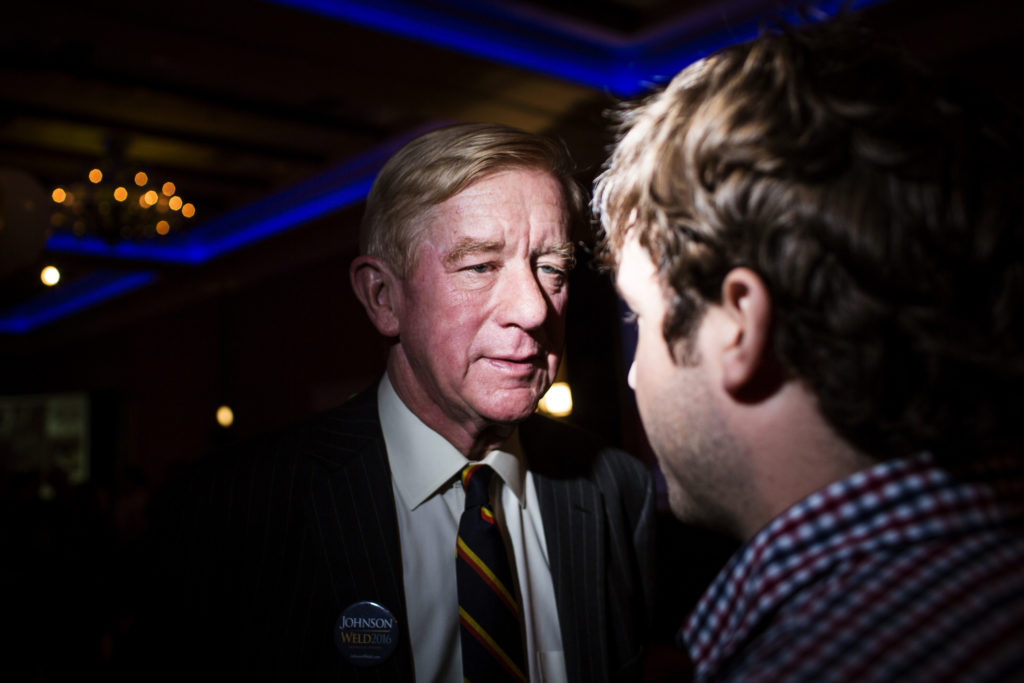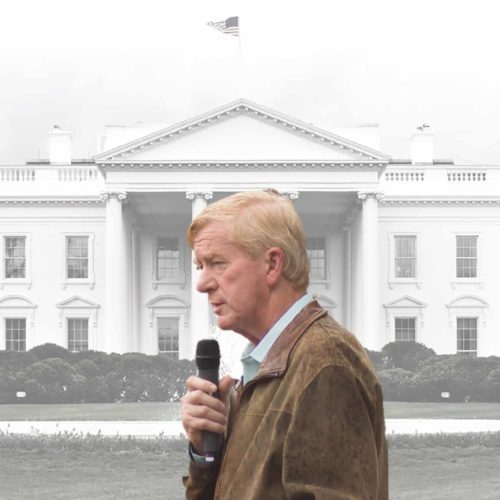Introduction
President Donald Trump may have his first primary challenger: a candidate who hasn’t always run for public office as a Republican.
Bill Weld, 73, is the former Republican governor of Massachusetts who in 2016 became the vice presidential running mate of Libertarian Gary Johnson. Weld announced last week that he was exploring a bid for the White House, and he switched his party affiliation from Libertarian back to the GOP in January, according to CommonWealth magazine.
“Our president is simply too unstable to carry out the duties of the highest executive office in the land,” Weld said in Bedford, New Hampshire, as he launched his exploratory committee, a traditional precursor to formally running for president. “I’m here because I think our country is in grave peril, and I cannot sit any longer quietly on the sidelines.”
It’s to be seen if he’ll jump into the White House race with the enthusiasm he did jumping into the Charles River in a T-shirt and khakis — a move to prove the cleanliness of the water. (He later told New York Magazine, “The river wasn’t as clean as I thought. I had an earache for three weeks.”)
Here’s more on Weld’s political and financial history:
- Special Counsel Robert Mueller’s sole federal contribution on record went to Weld. Mueller wrote Weld two checks totalling $450 during Massachusetts’ 1996 U.S. Senate race, according to the Center for Responsive Politics. Weld lost to incumbent Sen. John Kerry, D-Mass., by about 190,000 votes. Weld collected $8.1 million for his race, short of Kerry’s $12.8 million. Weld shut down his Senate campaign account without paying back $275,800 out of the $300,000 he loaned to his campaign.
- In 2005, Weld entered, then later dropped out, of the race for governor of New York, where he was running as a Republican. From Jan. 1, 2005, to June 6, 2006, the day Weld dropped out, Weld raised $3 million, more than any other Republican. The Republican nominee, John Faso, raised $1.4 million during that period. The eventual winner, Democrat Eliot Spitzer, raised $21.8 million during that time, according to the New York Board of Elections.
- Federal lobbying disclosures show Weld registered as a lobbyist for international law firm McDermott, Will & Emery. Between 2007 and 2011, he is listed on reports for defense contractor Raytheon, CNX Gas Corporation, Sony Electronics and shoemaker New Balance. He discussed issues such as cap and trade legislation, shoes for members of the military and recycling electronics. Weld is currently a member of lobbying firm ML Strategies, providing “clients with counsel related to government strategies, litigation, and general business advice,” according to the company’s website, though he doesn’t appear on any of the firm’s federal lobbying registrations.

- When Johnson and Weld ran on the Libertarian ticket for president in 2016, they raised more than $12 million, with 63 percent of that coming from small-dollar donors. They received the most money from retired individuals ($471,000), financial industry workers and PACs ($106,000) and the education industry ($98,000), according to data from the Center for Responsive Politics. Weld’s prior campaign warchest isn’t much help now: The 2016 Johnson-Weld committee only has $244 cash on hand and more than $150,000 worth of debt, according to its latest federal filing.
- Super PAC AlternativePAC, which can raise and spend unlimited amounts of money, spent $1.1 million backing Johnson and Weld during the 2016 presidential campaign. The group’s largest donors include Chris Rufer, founder of tomato company Morning Star ($450,000); Harmon Brothers LLC, the ad firm behind the “squatty potty” and “Poo-Pourri” ($329,000) and Christy Walton, philanthropist and the widow of John Walton, the son of Walmart founder Sam Walton ($250,000). Rufer gave an additional $112,00 to another pro-Johnson and Weld super PAC, Americans Deserve Better.
- Weld doesn’t discriminate by party in terms of his own federal campaign contributions, giving to candidates such as independent U.S. Sen. Angus King of Maine, Republican Sen. Susan Collins of Maine and Democratic Rep. Carolyn Maloney of New York.
- President Ronald Reagan appointed Weld as the U.S. attorney for Massachusetts from 1981 to 1986. He was promoted to assistant U.S. attorney general, heading the Department of Justice criminal division, but resigned after two years because of disagreements over ethics with Republican Attorney General Ed Meese.
- In 1990, Weld won his race for Massachusetts governor, the first Republican to do so in 20 years. Voters re-elected Weld to the governor’s office in 1994 with 71 percent of vote, beating out Democrat Mark Roosevelt.
- Weld resigned his post as governor in 1997 after President Bill Clinton nominated him to be ambassador to Mexico. Weld faced pushback from the chairman of the Senate Foreign Relations Committee, Sen. Jesse Helms, R-N.C., who refused to grant him a hearing. Weld withdrew his name from consideration a few months later.
Sources: Center for Public Integrity reporting, Federal Election Commission, OpenSecrets.org, Boston Herald, Politico, CommonWealth magazine, Secretary of the Commonwealth of Massachusetts, New York Magazine, The New York Times, New York State Board of Elections,
Read more in Money and Democracy
Money and Democracy
What second-quarter fundraising can tell us about 2020
Presidential campaign finance disclosures help gauge candidate viability and voter enthusiasm.
Money and Democracy
Controversial J&J drug pushed by Trump is nixed from VA’s pharmacy list
Experts question Spravato’s safety and effectiveness.


Join the conversation
Show Comments
Is Bill Weld running and if so, what is his oficial website address for his champagne? Not sure if this is a Joke but the website found is ( https://www.weld2020.org/ ) and what strikes me is that it is ( ORG ) not ( COM ) as many other candidates are.
Your political career was over a long time ago. I guess you must need the money. Please go away.
Ha ha good one!